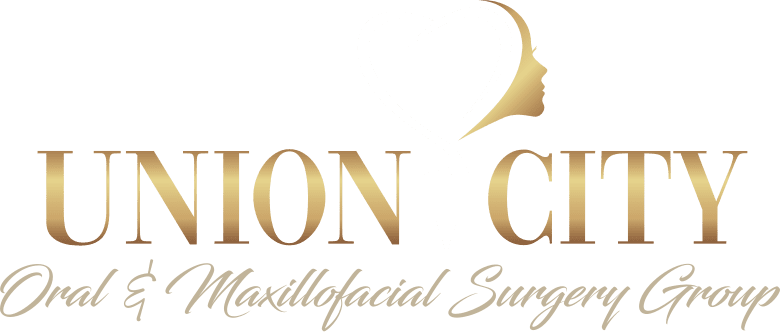Imagine you are brushing your teeth in the morning, a simple task you perform daily without much thought. Yet, this routine practice may have a profound impact on more than just your oral health. Research shows there is a significant link between dental hygiene and heart health, a connection that might surprise many. This article will explore the relationship between the health of your mouth and your heart, providing insights into why maintaining good dental hygiene is crucial for overall well-being.
At Union City Oral Surgery Group, we understand the importance of comprehensive health care, including the often-overlooked connection between dental hygiene and heart health. Our mission is to provide exceptional oral care, ensuring our patients not only achieve a healthy smile but also support their overall health. Through advanced dental techniques and personalized care, we aim to help you understand and mitigate the risks associated with poor dental hygiene.
The Link Between Gum Disease and Heart Disease
Gum disease, or periodontal disease, is a common oral health issue that affects many adults. It starts with the build-up of plaque on teeth, which can lead to inflammation of the gums, known as gingivitis. If left untreated, gingivitis can progress to periodontitis, a more severe form of gum disease that can destroy the bones that support your teeth. Studies have shown a correlation between gum disease and heart disease, suggesting that inflammation and bacteria from the mouth may contribute to the development of heart conditions.
One key factor in this connection is inflammation. Chronic inflammation from gum disease can increase the level of inflammatory markers in the bloodstream. These markers can contribute to the formation of atherosclerotic plaques in the arteries, which can lead to heart attacks or strokes. The bacteria from infected gums can also enter the bloodstream, traveling to other parts of the body, including the heart. This can cause an infection of the inner lining of the heart chambers or valves, a condition known as endocarditis.
Another aspect to consider is both heart disease and gum disease share common risk factors, such as smoking, poor nutrition, and diabetes. This overlap suggests individuals with poor oral health are also likely to have habits or conditions that predispose them to heart disease. Therefore, addressing gum disease through proper dental hygiene and regular dental visits can have a dual benefit, potentially reducing the risk of heart disease.
Impact of Dental Hygiene on Blood Pressure
Maintaining good dental hygiene can also influence blood pressure levels. Recent studies have found individuals with good oral health tend to have better-controlled blood pressure compared to those with gum disease. This is particularly important for those managing hypertension, as uncontrolled high blood pressure is a significant risk factor for heart disease and stroke.
Oral infections can cause systemic inflammation, which in turn affects blood vessels and blood pressure. By keeping your mouth healthy, you reduce inflammation and help maintain stable blood pressure levels. Furthermore, medications for gum disease can interact with blood pressure medications, making it more challenging to control hypertension. Regular dental check-ups and maintaining oral hygiene can help avoid these complications.
In addition, poor dental hygiene can lead to tooth loss, which has been linked to higher blood pressure levels. Research suggests losing teeth may increase the risk of developing high blood pressure, possibly due to changes in diet and nutrition. Ensuring you have a healthy set of teeth helps in maintaining a balanced diet, which is crucial for managing blood pressure and overall cardiovascular health.
Preventative Measures for Better Oral and Heart Health
There are several steps you can take to improve both your oral hygiene and heart health. First and foremost, brushing your teeth at least twice a day and flossing daily are essential practices. Using an antimicrobial mouthwash can also help reduce the bacteria that cause gum disease. Regular dental check-ups and cleanings are crucial to catch any early signs of gum disease and to receive professional advice on maintaining oral health.
Adopting a healthy diet is another critical factor. Consuming a balanced diet rich in fruits, vegetables, whole grains, and lean proteins supports both oral and heart health. Limiting the intake of sugary foods and beverages can prevent the build-up of plaque and reduce the risk of cavities and gum disease. Avoiding tobacco products is also vital, as smoking is a significant risk factor for both gum disease and heart disease.
Lastly, managing stress through regular physical activity, adequate sleep, and relaxation techniques can benefit your overall health, including your oral and cardiovascular health. Stress can lead to behaviors that negatively impact dental hygiene, such as neglecting regular brushing and flossing or engaging in unhealthy eating habits.
Why Choose Union City Oral Surgery Group?
At Union City Oral Surgery Group, we prioritize your overall health by providing exceptional oral care that can positively impact your heart health. Our team, led by Dr. Nancy Herbst, offers a wide range of services, from wisdom teeth extraction to dental implants, all performed with the latest techniques and state-of-the-art equipment. We are committed to ensuring your comfort and satisfaction, whether you are visiting for a routine check-up or a more complex procedure.
Our office is dedicated to being there for you before, during, and after your surgical experience. With over 25 years of experience, Dr. Herbst has been recognized as one of New Jersey’s top oral surgeons. Trust Union City Oral Surgery Group to provide the highest level of care for your oral health needs. For more information or to schedule a consultation, call us at (201) 601-9262 or visit our contact form.


